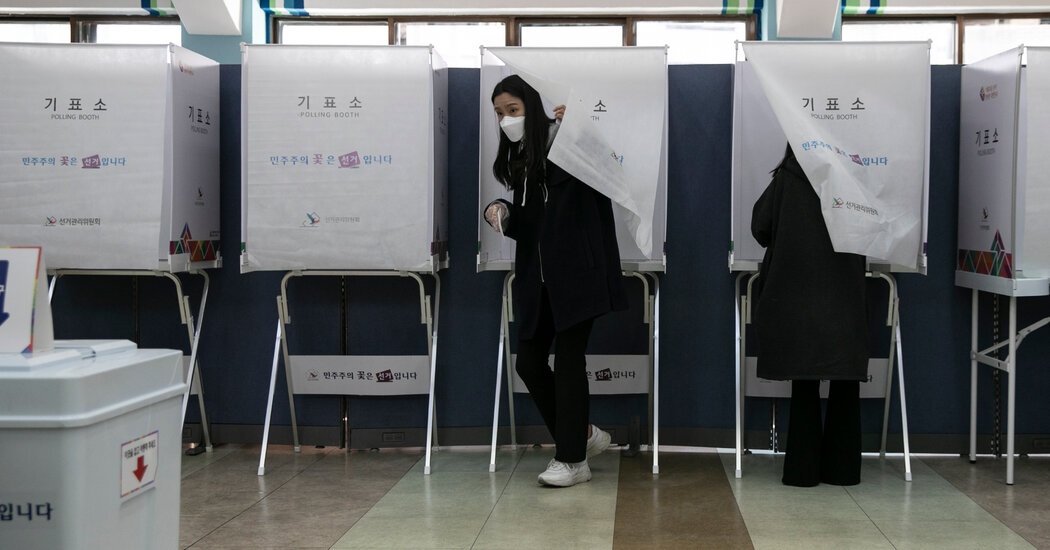
SEOUL — As some South Korean voters trickled out of polling stations on an unseasonably warm Election Day, others lingered in the voting booths, ballot in hand.
“Past elections used to be clearly swayed toward one person, but now it’s different,” said one voter, Kim Do-hyung, 29, who said he is preparing to apply for jobs in the information technology sector. “There are many people around me who are having a hard time deciding.”
In interviews, many voters expressed uncertainty over their pick because the scandals and negative campaigning that had plagued much of the presidential race made neither of the two front-runners, Lee Jae-myung and Yoon Suk-yeol, appear desirable. South Korean media have referred to the race as a “mud fight” and an election of “unlikables.”
But voter turnout by late afternoon on Wednesday was higher than it was around the same time in the last two presidential elections, likely driven in part by the expectation that this would be a close race.
Public opinion polls last week showed a razor-thin margin between the two leading candidates. By comparison, President Moon Jae-in won in 2017 with a 17-point lead over the runner-up — the largest margin of victory in history.
“This election feels more complicated than five years ago,” said Ji Hee-yeon, 65, who said she had made a last-minute decision in the polling booth. “My mind always kept changing. I didn’t know who would be a good choice.”
Ahn Da-young, 29, said she didn’t arrive at a decision until the day before she voted early on Saturday, when she chose Sim Sang-jung, a third-party candidate and one of few women hopefuls.
“I don’t think she will be elected, but I didn’t simply want to pick someone that I disliked less,” Ms. Ahn said. “She was the candidate that I most wanted to choose in terms of their political views.”
The disenchantment of some voters could stem from anxiety about the state of the country, which is currently dealing with an Omicron surge. On Wednesday, new daily cases surpassed 342,000, and 1.2 million people were being treated for Covid-19, nearly a quarter of the total cases recorded by the country since the pandemic’s start.
Voters also expressed disappointment with the current government, citing hardships such as the country’s runaway housing prices. While Mr. Moon enjoyed a historically high approval rating earlier in his term, it dropped to 45 percent last week, according to Gallup Korea. Many voters said this election would be a judgment of his administration.
“The current administration scores zero in my book,” said Lee Jae-don, 81, a retiree. “It hasn’t done a single thing right.”
Even Park Seo-youl, 37, who voted for Mr. Lee, the candidate of Mr. Moon’s party, said she chose him because she hoped he would enact the most reform.
“I think he is the candidate who will change something,” said Ms. Park, a translator in Seoul. “Reform is overdue.”
The election also coincided with a deepening bitterness over South Korea’s well documented income gap and gender inequality.
“What upsets me more than anything else is that this seems to be an era where men and women are more divided, the rich and the poor are farther apart and people distrust one another more,” said Stella Lee, 36, who works at an architecture firm in Seoul.
“The seeds of distrust are everywhere,” she added. “I don’t think they’ll go away anytime soon.”




